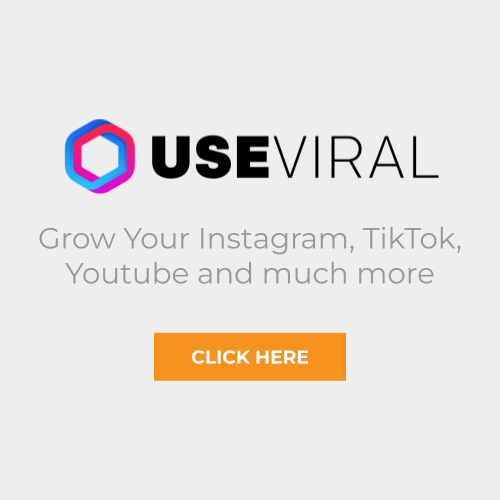Home » Blog » Personal Branding »
How to Build a Personal Brand


My step-by-step guide covers everything from defining your brand to creating a website, SEO and using social media to your advantage. Start building a strong personal brand today!
Do you know, How to Build a Personal Brand? Personal branding is one of the most powerful tools to establish your credibility in the market.
It can help you stand out from the competition. It can also create new opportunities and grow your career or business.
Personal branding has become increasingly important. People tremendously rely on the internet for connection and information.
A solid online presence is necessary to establish a name in their field.
The Growing Importance of Personal Branding
The rise of social media and the internet has changed how we communicate and interact. Personal branding is no longer a luxury but a necessity.
A well-defined personal brand can help you establish online and offline credibility and trust. It can also provide a platform to share your knowledge, experiences, and expertise with a broader audience.
How to Build a Personal Brand
Key Benefits of Building a Personal Brand
There are several key benefits of personal branding, including:
- Increased visibility: A strong personal brand can make you more visible. This can help you stand out in a crowded marketplace. Potential clients, customers, or employers will find it easier to find and connect with you.
- Establishing credibility: Creating credibility is essential. You can present your skills and successes through your personal brand. This will help you gain your intended audience’s trust and credibility.
- Attracting new opportunities: A well-developed personal brand can bring new opportunities. These may include speaking engagements, collaborations, or job offers.
- Building a loyal following: Creating a devoted audience is possible. A strong personal brand can help you attract people who share your values, interests, and ambitions. This can create a loyal following.
- Personal and professional growth: Developing your personal brand requires continuous learning, growth, and evolution. This can help you progress both personally and professionally.
Understand the increasing value of personal branding. Gain an advantage by crafting a genuine online presence. Understand the steps to create a strong personal brand. This will benefit your personal and professional objectives.
Define Your Brand
You must define what makes you unique to build a successful personal brand. This will help you stand out from competitors. This involves identifying your core strengths, values, and passions and determining your unique selling points and positioning.
Assessing Your Strengths, Values, and Passions
You must deeply understand your strengths, values, and passions to create a strong personal brand. Start by asking yourself the following questions:
- What are my core strengths and skills?
- What am I particularly good at?
- What are my core values?
- What principles and beliefs guide my actions and decisions?
- What am I passionate about?
- What drives and motivates me to succeed?
By reflecting on these questions, you can gain valuable insights into the key elements that make up your personal brand.
Determining Your Unique Selling Points and Positioning
Once you clearly understand your strengths, values, and passions, it’s time to determine your unique selling points (USPs) and positioning.
Your USPs are the qualities that differentiate you from others in your field. Your positioning is how you want to be perceived by your target audience. Consider the following:
- What sets me apart from others in my industry or niche?
- How can I leverage my strengths, values, and passions to create a unique value proposition for my audience?
- What problems can I solve or needs can I address for my target audience?
Answering these questions will help you identify your USPs and establish a clear positioning for your personal brand.
Crafting a Compelling Brand Statement and Elevator Pitch
With your strengths, values, passions, USPs, and positioning in mind, it’s time to craft a compelling brand statement and elevator pitch. Your brand statement should clearly express your unique value and positioning.
Your elevator pitch should be brief and persuasive. It should provide an overview of who you are, what you do, and what makes you different.
Here’s an example of how to craft a compelling brand statement and elevator pitch:
“Are you a small business struggling to make an impact online? Let me help you. As a passionate and innovative digital marketer, I specialize in creating effective social media strategies to help your business expand its online presence.
With my expertise, I can help you grow your brand on popular platforms like Facebook, Instagram, and Twitter. Don’t let your business get left behind in the digital age.
Let me help you reach your online potential and connect with customers like never before. Choose me, and we’ll take your small business to new heights together.
My approach is distinct from others in the industry. It is based on my enthusiasm for innovation and dedication to my client’s success. This is what makes me stand out as a marketer.”
Define your brand and create a brand statement and elevator pitch. This will establish a strong and genuine personal brand. It will also be attractive to your target audience.
Understand Your Target Audience
To build a successful personal brand, it’s crucial to understand who your target audience is and what they’re looking for.
Identify your ideal audience segments. Research their demographics, interests, and needs. Tailor your content and messaging to resonate with them. This will create a more powerful and effective personal brand.
Identifying Your Ideal Audience Segments
The first step in understanding your target audience is identifying your target audience segments. These are the groups of people who are most likely to be interested in your expertise, products, or services. Consider the following questions:
- Who are the people that would benefit most from my expertise or offerings?
- What industries, niches, or markets do these people belong to?
- Are there any specific demographics, such as age, gender, location, or income level, that are relevant to my target audience?
You can clearly picture your ideal audience segments by answering these questions.
Researching Audience Demographics, Interests, and Needs
Once you’ve identified your ideal audience segments, it’s important to research their demographics, interests and needs in more detail.
Understand how to communicate with your audience. This will help you effectively engage with them. Gain valuable insights into the type of content that resonates with them. Here are some ways to conduct this research:
- Conduct surveys or interviews with your existing audience or customers.
- Analyze data from your website, social media accounts, or other digital platforms.
- Use online tools like Google Analytics, social media analytics, or audience research tools to gather demographic and interest data.
The research will help you understand your audience better. You’ll learn their preferences, motivations, and pain points. This will allow you to create content that is more targeted and effective.
Tailoring Your Content and Messaging to Resonate with Your Target Audience
Understand your target audience’s demographics, interests, and needs.
Tailor your content and messaging to resonate with them.
Create content that addresses the audience’s specific challenges, interests, and desires. Communicate in a way that appeals to their preferences and values.
Target your content to young professionals interested in personal finance. Create content that focuses on budgeting, saving, and investing tips. Use a conversational tone and simple language. Make the information easy to understand and relatable.
Understand your target audience. Tailor your content and messaging to that audience. This will create a personal brand that connects with your audience. This connection will foster trust, credibility, and loyalty.
Create Engaging Content to Build a Personal Brand
Building a strong personal brand is important. To do this, you must create content that highlights your expertise and resonates with your target audience. Engaging content is key to cultivating a successful brand.
Examine different forms of content. Set up a regular content production plan. Become an expert in your field. This will help you strengthen your personal brand and develop a closer relationship with your audience.
Types of Content to Consider
You can create numerous types of content to engage your audience, depending on your preferences, target audience, and area of expertise. Here are some content types to consider:
- Blog posts: Share your insights, advice, and experiences through written articles on your website or blog.
- Videos: Start building engaging and visually appealing videos demonstrating your expertise or providing valuable information to your audience.
- Podcasts: Host a podcast where you discuss relevant topics, interview experts, or share stories related to your niche.
- Infographics: Design visually appealing infographics that convey complex ideas or data in a simple and accessible way.
- Social media posts: Share short content, tips, and insights on social media platforms like Instagram, Twitter, and LinkedIn. Make sure the content is tailored to the platform’s audience.
Take examples from personal life. Experiment with different content formats to determine what resonates best with your audience and aligns with your personal strengths.
Establishing a Consistent Content Creation Schedule
Consistency is key when it comes to creating engaging content to Build a Personal Brand. Establishing a regular content creation schedule will keep your audience interested and engaged while improving your online presence and visibility.
Here are some tips for creating a consistent content schedule:
- Set realistic content creation goals based on your available time and resources.
- Plan your content topics and formats in advance, using an editorial calendar to stay organized.
- Allocate content creation, editing, and promotion time in your weekly routine.
- Track your progress and adjust your schedule to maintain consistency to build your brand.
Remember, quality is more important than quantity. Focus on creating valuable content that genuinely connects with your audience, even if it means posting less frequently.
Demonstrating Your Expertise and Becoming a Thought Leader in Your Niche
By consistently creating engaging content, you can position yourself as a thought leader in your niche, further strengthening your personal brand.
To become a thought leader, consider the following:
- Share your unique perspective, experiences, and expertise to provide valuable insights to your audience.
- Stay informed about your industry’s latest trends, news, and developments to maintain credibility.
- Engage with other thought leaders and influencers in your niche through collaboration, interviews, or guest appearances.
- Seek opportunities to speak at industry events, conferences, or webinars to showcase your expertise further.
Focus on creating engaging content that demonstrates your expertise. This will position you as a thought leader. Enhancing your personal brand and establishing a strong connection with your target audience will be the result.
Optimize Your Online Presence to Build a Personal Brand
Optimizing your online presence across various platforms is crucial to enhance your personal brand further.
Create a powerful personal brand by building a website and blog. Leverage social media platforms for visibility. Ensure brand consistency across all social media profiles.
Building a Personal Website and Blog
A personal website and blog are essential for your online presence. They offer your audience a single source of information about you, your skills, and your content. Consider the following steps when building your website and blog:
- Choose a domain name that reflects your personal brand and is easy to remember.
- Select a website platform or content management system that suits your needs, such as WordPress, Squarespace, or Wix.
- Design a visually appealing and user-friendly website layout that aligns with your personal brand aesthetics.
- Include an “About” page with your story, background, expertise, and professional headshot.
- Regularly publish high-quality blog posts that showcase your knowledge and provide value to your target audience.
Related Post: How to Start a Blog
Leveraging Social Media Platforms to Build a Personal Brand
Social media platforms offer great potential for personal branding. They let you connect with your audience, share content, and interact with other professionals in your field. This helps you build a strong presence.
To leverage social media for personal branding, consider the following tips:
- Choose the right platforms based on your target audience’s preferences and content format.
- Create a content strategy for each platform, tailoring your messaging and format to suit the platform’s unique audience and style.
- Engage with your followers by responding to comments, asking questions, and sharing user-generated content.
- Use hashtags and join relevant groups or communities to increase your reach and connect with like-minded individuals.
Optimizing Social Media Profiles for Brand Consistency and Visibility
Consistency is key in personal branding; your social media profiles should reflect this. Here are some tips for optimizing your profiles:
- Use a professional and consistent profile picture across all platforms.
- Craft a compelling bio or “About” section highlighting your expertise, accomplishments, and personal brand statement.
- Include relevant keywords in your profile to improve search visibility and make it easier for your target audience to find you.
- Customize your profile URLs, if possible, to include your name or personal brand.
- Link to your personal website, blog, and other social media profiles to create a cohesive online presence.
Optimizing your online presence across various platforms can create a strong personal brand. This resonates with your target audience and boosts your credibility as an expert.
Engage with Your Audience and Network
An essential aspect of building a strong personal brand is engaging with your audience and expanding your network.
Share content, participate in online communities, and build strategic partnerships. This will help you build deeper connections with your audience. It will also help you establish yourself as a trusted expert in your niche.
Sharing Content and Engaging with Your Audience on Social Media
To create meaningful connections with your audience, share valuable content and engage with them on social media. Consider these tips for fostering engagement:
- Share your latest blog posts, articles, videos, and other content across your social media platforms.
- Encourage your audience to share their thoughts and opinions on your content through comments, polls, or surveys.
- Respond to comments and messages promptly to show your appreciation for their engagement.
- Share relevant industry news, trends, and insights to spark conversation and showcase your expertise.
- Interact with your audience in real time. Use live streaming, Instagram Stories, or Twitter Spaces to offer a more personal touch.
Participating in Online Forums, Groups, and Industry Events
Active participation in online forums, groups, and industry events can be beneficial. You can connect with individuals who share similar interests, learn from others, and share your own expertise. To make the most of these opportunities:
- Identify relevant forums, LinkedIn or Facebook groups, and online communities within your niche, and join them.
- Discuss by asking questions, offering advice, or sharing your insights and experiences.
- Attend industry events, webinars, or conferences to learn from experts, network with peers, and stay updated on trends and best practices.
- Consider speaking at events or hosting webinars to share your knowledge and position yourself as an authority in your field.
Building Strategic Partnerships and Collaborations
Collaborating with other professionals or influencers in your niche can significantly expand your reach and credibility. To build strategic partnerships:
- Identify individuals, businesses, or influencers with a similar target audience or complementary expertise.
- Reach out to potential collaborators with a well-crafted proposal highlighting the mutual benefits of working together.
- Let’s collaborate on projects together. We can write guest blog posts, record podcast episodes, host joint webinars, or take over each other’s social media accounts. This will help us promote our personal brands.
- Support your collaborators by sharing content, endorsing their skills, or writing testimonials to strengthen your relationships.
Engage with your audience and network. This will create meaningful connections, enhance your personal brand, and open up new opportunities for growth and collaboration.
Increase Your Visibility
Boosting your visibility is essential to build strong personal brand.
Social media management tools, SEO best practices, and guest posting can help increase your online presence.
Influencer marketing is another great way to amplify your reach.
Utilizing Social Media Management Tools for Effective Content Distribution
Maximize the impact of your content by using social media management tools. These tools can streamline content distribution and help you reach a wider audience. Some strategies include:
- Scheduling your content to post optimally ensures maximum visibility for your target audience.
- Utilizing analytics features to gain insights into your content’s performance, engagement, and reach.
- Discovering trending topics and hashtags within your niche to include in your content strategy.
- Monitoring your brand mentions and relevant conversations to stay engaged with your audience and manage your online reputation.
Popular social media management tools include Hootsuite, Buffer, and Sprout Social. Experiment with different tools to find the best suits your needs and preferences.
Implementing SEO Best Practices to Improve Search Engine Rankings
Optimizing your content for search engines is crucial for increasing your visibility and attracting organic traffic. To improve your search engine rankings, implement the following SEO best practices:
- Conduct keyword research to identify relevant and high-traffic search terms within your niche.
- Create high-quality, informative, engaging content that addresses your audience’s needs and incorporates your target keywords.
- Optimize your website’s metadata. This includes title tags, meta descriptions, and alt tags. This will provide search engines with valuable information about your content.
- Build a strong internal and external link structure to improve your site’s authority and user experience.
SEO is an ongoing process. It requires commitment and adaptation to changes in search engine algorithms and industry best practices.
Exploring Guest Posting and Influencer Marketing Opportunities
To build a Personal Brand collaborating with other reputable websites and influencers can help you reach new audiences and enhance your credibility. Consider these tips for guest posting and influencer marketing:
- Identify popular blogs, websites, or influencers within your niche that accept guest contributions or collaborate with other experts.
- Pitch high-quality, unique, relevant content ideas that align with their audience’s interests and preferences.
- Include a convincing author bio.
- Provide a link to your website or social media profiles.
- This will help drive traffic to your personal brand.
- Promote your guest posts or influencer collaborations on your own channels to maximize visibility and engagement.
Increasing your visibility through these strategies will strengthen your brand, expand your reach, and ultimately enhance your career or business prospects.
Build Trust and Credibility for Personal Brand
Establishing trust and credibility is essential for a successful personal brand. Ensure consistency in your messaging and branding across all platforms.
Showcase your expertise, achievements, and testimonials. Maintain professionalism and authenticity in all interactions. Doing this can effectively build trust with your audience and elevate your reputation.
Ensuring Consistency in Messaging and Branding Across All Platforms
Consistency is key to building a strong personal brand. To ensure your messaging and branding are cohesive across all platforms:
- Develop a clear and consistent brand voice that reflects your personality and values.
- Choose one profile picture, color scheme, font, and graphics across your online channels. This includes your website, blog, and social media profiles.
- Align your content topics and themes with your brand identity and areas of expertise.
- Regularly review and update your online presence to ensure consistency and relevancy.
Maintaining a consistent brand image will create a memorable and recognizable identity your audience can trust and relate to.
Showcasing Your Expertise, Achievements, and Testimonials
Demonstrating your credibility is crucial for establishing trust with your target audience. Here are some ways to showcase your expertise, achievements, and testimonials to build a Personal Brand:
- Share valuable insights, tips, and resources showcasing your niche knowledge and experience.
- Highlight your accomplishments, certifications, and awards on your website, LinkedIn profile, and other relevant platforms.
- Feature testimonials, case studies, or success stories from satisfied clients, customers, or colleagues that attest to your skills and expertise.
- Participate in industry events, conferences, and webinars as a speaker, panelist, or contributor to position yourself as a thought leader.
Maintaining Professionalism and Authenticity in All Interactions
To build trust and credibility with your audience, always maintain professionalism and authenticity in your interactions:
- Be transparent and genuine in your communications, avoiding overly salesy or self-promotional messages.
- Respond to comments, questions, and messages promptly and respectfully, demonstrating your commitment to engaging with your audience.
- Admit when you don’t know something or have made a mistake; be willing to learn and grow from those experiences.
- Share personal stories and experiences that align with your brand and showcase your authentic self.
Building trust and credibility with your audience will boost your brand’s reputation. It will also attract new opportunities and foster long-term relationships. These relationships can be beneficial to your career or business.
Monitor and Adjust Your Personal Brand
Like any marketing strategy, your personal brand requires ongoing monitoring and adjustment to ensure its success.
Assess your personal brand’s performance and impact regularly. Collect feedback and insights from your audience.
Adapt and refine your branding strategy based on data and trends. These steps will help you stay ahead of the curve and maintain a strong, effective personal brand.
Regularly Assessing Your Personal Brand’s Performance and Impact
To measure the performance and impact of your personal brand, consider the following steps:
- Set objectives and KPIs that align with your personal branding goals. Examples include website traffic, social media engagement, or new business inquiries.
- Monitor your KPIs regularly. Use analytics tools like Google Analytics, social media insights, or email marketing reports to track your progress. Identify areas for improvement.
- Analyze metrics such as audience engagement, reach, and conversions to evaluate the success of your content and strategies. Adjust your approach accordingly.
Collecting Feedback and Insights from Your Audience
Your audience is a valuable source of information that can help you refine and improve your personal brand. To collect feedback and insights:
- Regularly ask your audience for their thoughts and opinions through surveys, polls, or direct messages.
- Monitor comments and discussions on your blog posts, social media updates, or other content to identify trends and areas of interest.
- Encourage open and honest communication with your audience, and be receptive to constructive criticism and suggestions for improvement.
Adapting and Refining Your Branding Strategy Based on Data and Trends
Monitor your personal brand’s performance and gather feedback from your audience. This will enable you to adapt and refine your branding strategy. Doing so will help you better meet your objectives. Consider the following steps:
- Identify emerging trends and changes in your industry or niche that may influence your audience’s needs, preferences, or expectations.
- Adjust your content and messaging to address new developments, trends, or audience feedback, ensuring your personal brand remains relevant and engaging.
- Experiment with new strategies, platforms, or tactics to stay ahead of the curve and continuously improve your personal brand’s impact.
Monitor and adjust your personal brand regularly. This will help you stay agile, responsive, and ready to capitalize on new opportunities. Ensuring your personal brand remains a powerful asset in your career or business journey is the result.
Wrapping Up: How to Build a Strong Personal Brand
A strong personal brand is vital for career and business growth. It can give you an edge over competitors and open up many possibilities. The benefits of a personal brand are long-lasting.
Invest time and effort into building and maintaining an authentic personal brand. This will position you as an expert and attract your ideal audience.
Additionally, it will help you foster strong, lasting relationships.
Staying committed to continuous learning, improvement, and personal brand development is essential.
The digital landscape is constantly evolving, and so should your personal brand. Embrace new trends, technologies, and ideas to ensure your personal brand remains relevant and engaging.
Be proactive and dedicated to your personal brand. This will help you when challenges come. You will also be prepared to take advantage of opportunities.
Remember that building a personal brand is a journey, not a destination.
Stay true to your values, passions, and objectives. Adapt and grow as you progress in your career or business. Keep striving for success.
Building a strong personal brand is essential. To do this, you need determination, resilience, and a focus on delivering value to your audience. This will make your personal brand a powerful force in your professional life, paving the way for success and fulfillment.
To do this, engaging content that showcases expertise needs to be created. This content should be tailored to the target audience.
You May Also Like:





